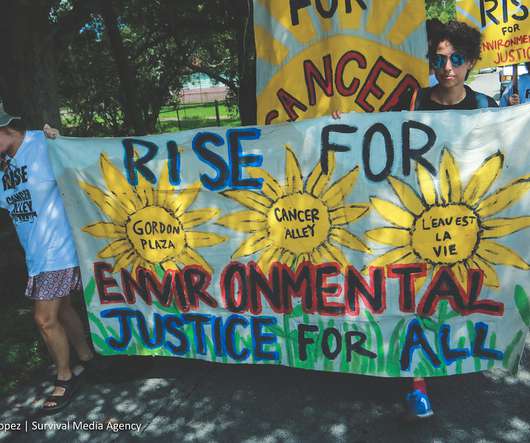Can The Fate Of Dolphins and Louisiana’s Fishing Industry Stop A Massive Mississippi River Diversion Plan?
DeSmogBlog
JUNE 21, 2021
The tide is turning against Louisiana’s proposed $2 billion Mississippi River sediment diversion project, that supporters say is needed to save the coast from rapid land loss due to subsidence, damage done by the oil and gas industry, extreme weather events, and sea level rise quickened by climate change.















Let's personalize your content